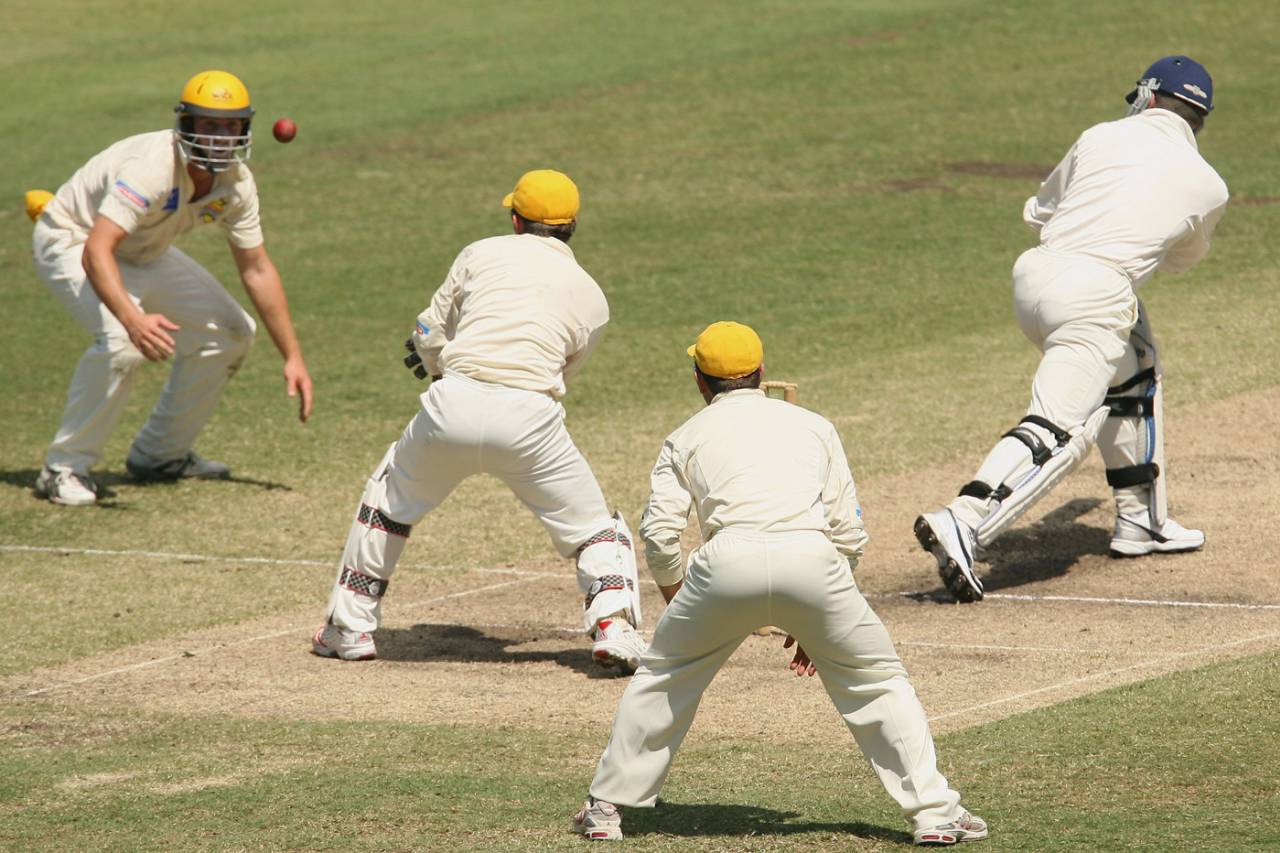During the
first South Africa-India Test, shortly after M Vijay was dismissed - caught down the leg side off Jacques Kallis - a familiar refrain was soon making the rounds on television and on Twitter: Vijay had been "unlucky", he had been "strangled down the leg side", his dismissal was "unfortunate". I call this refrain "familiar" because it appears so often for this particular kind of dismissal. Something, it seems, makes this method of getting out more susceptible to reckonings of misplaced fortune, of unfortunate placement in cricketing sweepstakes.
For the life of me, I cannot understand why. Vijay had simply played a "poorly executed shot". He had attempted a flick off his pads, his timing had been off, perhaps the ball was not in the right place for that shot to be essayed, the ball made contact with the bat at an unintended spot, thus imparting to it insufficient and poorly directed momentum. The result had been an easy catch to the wicketkeeper.
If there was any "luck" - a term, it seems to me, that is assigned as a cover-up for our ignorance of all the factors that may impinge on our fortunes - then that kind of luck was present in any other kind of dismissal. My friend and Cordon colleague Subash Jayaraman suggested it was because "nine times out of ten that shot comes off and when it doesn't, you simply miss the ball". It's unlucky therefore, to only make partial contact. This sounds right, but it can't be.
Consider, for instance, that that sort of analysis could be made for almost any shot: "Nine times out of ten a cover drive comes off. When it doesn't, you simply miss the ball. You have to be unlucky to simply edge it to slip."
The only thing distinguishing the two cases - and it isn't much - is that in the case of the catch down the leg side, the batsman gets merely a fine tickle, one that makes the catch possible. (Edges off the bat that fly to slip are normally a bit thicker; the finer ones go through to the keeper.) Any more contact with the bat and it would require either a superhuman effort from the wicketkeeper - thus generating those spectacular leg-side catches we all love so much - or render the ball well and truly out of reach and on its way to the boundary.
Only in a universe where batsmen were expected to be perfect would we suggest that a mere random confluence of physical factors had conspired to dismiss him
An analysis of a batsman's dismissal that factors in luck is flawed in relying too much on factors being unknown that simply aren't. Every dismissal requires collaboration by the bowler and batsman; sometimes the bowler's line and length forces the mistake from the batsman; sometimes the batsman obligingly hands over his wicket to the bowler by attempting a poorly thought out and planned shot; sometimes an intended shot is appropriately planned but executed imperfectly. In every dismissal, whenever a batsman plays a shot, there is a failure of execution: the batsman's judgement of the ball to essay the shot has been incorrect, or the shot itself is not executed with the correct physical set-up - feet not in position, for instance - and follow-through.
What has luck got to do with it? Cricketers are humans and they cannot be infallible, so an ascription of error to them does not diminish them in the slightest. Why would it? Only in a universe where batsmen were expected to be perfect would we suggest that a mere random confluence of physical factors had conspired to dismiss him.
As I noted above, an ascription of luck is a statement of ignorance. Many, many events conspire to bring about the ten dismissals in every cricketing innings: the smoothness of the pitch's surface, the wear and tear of the ball, the length of the pitch's grass blades, the moisture in the air; these aid or obstruct the efforts of the batsman and the bowler. We often cover up our ignorance of their contributions: "He hasn't had luck go his way today while bowling" is simple shorthand for "We don't know why he didn't get wickets today." We'll continue to rely on that term so long as it carries the mileage it does in enabling a pithy description of the limits of our knowledge.
But in many cases, like the flick that didn't come off, we know enough about how that shot is played, how it comes off and how it doesn't, to be able to say: "The batsman simply didn't play that shot well enough." It might be that some moisture in the air made the ball swing just a tad more and thus messed up Vijay's calculations about whether the shot would come off or not. But such uncertainty is present in all dismissals, whether catches or leg-befores or run-outs. We do not rely on luck then as an explanation when so many other plausible explanations are present.
We should do the same for the catch down the leg side. There's nothing unlucky about such a dismissal.
Samir Chopra lives in Brooklyn and teaches Philosophy at the City University of New York. He tweets here
